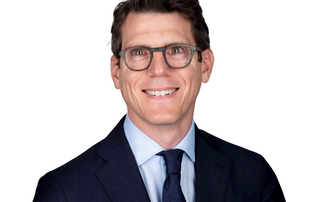INDUSTRY VOICE: Over the last quarter, traditionally 'defensive' assets have not protected portfolios as much as would normally be expected. In his latest 'Open Outcry', Bill McQuaker discusses why we've seen an atypical response from these assets, and the areas that he's still prepared to hedge his bets against.
Attention has been focused on equities in the first quarter, with concerns over rising trade protectionism and the fallout from Facebook's use — or misuse — of its users' data. But another story has caught my eye this year, and that's the relatively poor performance of what I call ‘hedging' assets, including government bonds, loans and gold.
Defensive assets tend to do well in more volatile markets, and so their weak performance is particularly unusual given that we have seen two risk-off moves in the past three months. January's sell-off was triggered by better than expected wage growth in the US, and March's volatility was a response to the announcements on tariffs by the Trump administration.
While we would normally expect hedging assets to have performed relatively strongly during periods of market stress, these particular triggers of volatility seem to have caused an atypical response for some of these assets. The potential for higher than expected inflation as wages rise, for example, is negative for both bond and equity markets, while tariffs are generally seen as increasing inflationary pressures and damaging the outlook for corporate profits.
Individual government bond markets also face their own specific risks. This is particularly the case in the US, where the Federal Reserve is now selling government bonds, and the federal government is in the midst of an almost unprecedented peacetime expansion in spending. Put simply, this market faces poor technicals, with more debt to be sold, and with one of the most significant buyers since the financial crisis now selling.
That weakness in US Treasuries, however, has given us an opportunity to add in the Open range. While the technical picture for Treasuries is negative in the short term, the outlook for the asset class as a whole over the medium term is more positive. Higher yields should encourage income investors to add to Treasuries, and portfolio managers like me will want to build defensiveness into portfolios towards the end of the market cycle. More immediately, slowing growth should help fixed income performance, as higher oil prices and tighter monetary policy begin to impact an already sluggish consumer.
I have also been adding to UK Gilts, which are likely to be favoured as a safe haven in the event of a bad Brexit outcome. While the announcement of a 21-month transition deal was positive for UK assets, the longer-term risks of Brexit are still there, with business continuing to face a great deal of uncertainty, which is likely to constrain the economy's speed limit.
We've generally been trying to increase the robustness of the Open range over the past six months. My most recent trade to this effect has been to add to physical gold. This has traded in a relatively tight range since the beginning of the year, with spot gold oscillating between $1320 and $1360. The asset class should head higher if we see markets focusing more on geopolitical risks, like the re-imposition of American sanctions on Iran or renewed tension between the US and North Korea.
Geopolitical risk has certainly picked up in recent weeks, with the appointment of Mike Pompeo as Director of the CIA, and John Bolton as Trump's National Security Adviser. Both are foreign policy hawks, with the experience of government needed to push through their views. Perhaps most interesting is the potential for the North Korea and Iranian issues to become interlinked. Bolton already outlined a plan on how he would deal with Iran last year, stating that the administration should ‘consider the declassifying of information related to activities such as the Iran-North Korea partnership, and how they undermine fundamental interests of our allies and partners.'
So, while traditionally defensive assets have not protected portfolios as much as we would normally expect to be the case over the past quarter, this short-term disappointment is unlikely to persist. While there are short-term risks to the performance of government bonds and gold, such as higher issuance or a calmer market environment, their longer-term purpose in portfolios looks increasingly assured. Overall, the strategy behind the Open range remains the same: remaining neutral on risk overall and increasing exposure to hedging assets like government bonds and gold.
Listen now: Fidelity's asset allocation podcast
Fidelity's Asset Allocation Group gather to discuss how they are positioned this month - and here you can listen in on their April debrief, hosted by Richard Edgar, Editor in Chief.
Portfolio Manager Pek Ng, Research Analyst Ian Samson, and James Bateman, Chief Investment Officer, explain their positioning and the need to be more active on equities.
Find out more about Fidelity Multi Asset
Important information
The value of investments and the income from them can go down as well as up, so you may not get back what you invest. Past performance is not a reliable indicator of future returns. Investors should note that the views expressed may no longer be current and may have already been acted upon. Overseas investments will be affected by movements in currency exchange rates. The price of bonds is influenced by movements in interest rates, changes in the credit rating of bond issuers, and other factors such as inflation and market dynamics. In general, as interest rates rise the price of a bond will fall. The risk of default is based on the issuer's ability to make interest payments and to repay the loan at maturity. Default risk may, therefore, vary between different government issuers as well as between different corporate issuers. Liquidity is a measure of how easily an investment can be converted into cash. It is possible that, in difficult market conditions, it could be hard to sell holdings in corporate bond funds. Investments in emerging markets can be more volatile than other more developed markets. Reference to specific securities should not be construed as a recommendation to buy or sell these securities and is included for the purposes of illustration only.











